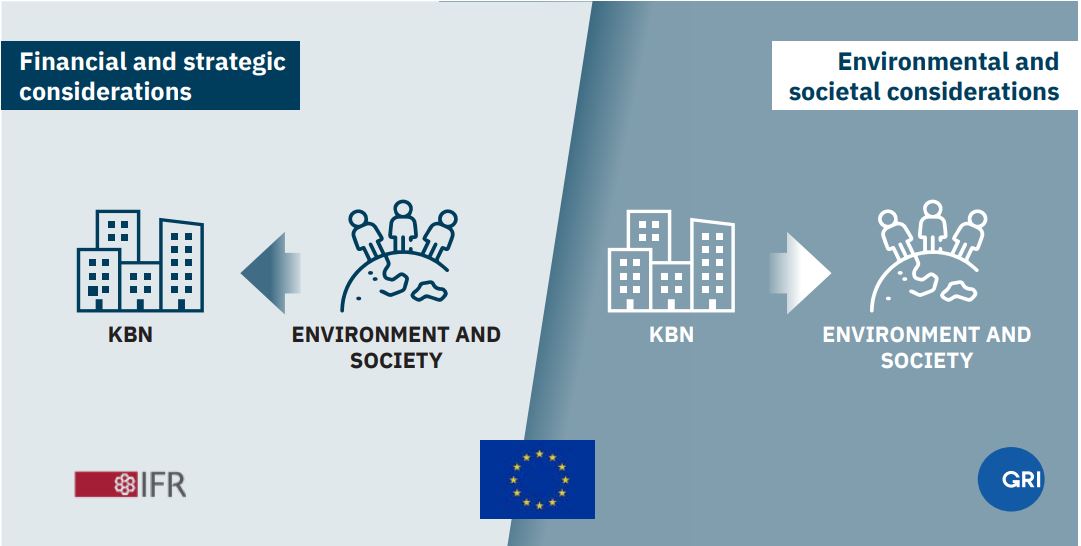Stakeholders
We base our work on sustainability on extensive dialogue with those stakeholders that are either materially affected by our activities or that can affect our activities in a material way.
This includes KBN’s customers, employees, owner, Board of Directors, the authorities, investors, rating agencies and society in general. KBN continually maps any new signals and expectations from our owner, changes in national and international laws and standards that affects best practice, and the development of norms and attitudes of significance to our stakeholders, with the objective of being at the forefront within prioritised areas of sustainability.
Materiality analysis
A materiality analysis identifies an organisation’s relevant sustainability-related issues and determines boundaries for its activities and reporting. KBN carried out the current materiality analysis in the autumn of 2022, as part of which key stakeholders provided input on KBN’s priorities for our sustainability work going forward. With regard to internal stakeholders, all KBN’s employees as well as our management team, Board of Directors and Supervisory Board were involved. With regard to external stakeholders, KBN conducted interviews with the Norwegian Association of Local and Regional Authorities (KS, local government sector interest group), Samfunnsbedriftene (an interest group for enterprises in the municipal sector), the Norwegian Climate Foundation (a climate interest group) and Citi.
The objective of the materiality analysis was to define KBN’s most significant influence in respect of sustainability, and on the basis of this to ensure sound risk management, precise and reliable strategy and resource allocation, sound and relevant reporting and satisfactory compliance with rules and regulations. In addition, the materiality analysis facilitates anchoring and integrating sustainability into KBN’s activities.

Double materiality
The analysis was carried out using the concept of double materiality, which means that the analysis considered both how KBN affects, and is affected by, society and the environment. The following topics were identified as material:
Environment
- Greenhouse gas emissions
- Water and sanitation
- Responsible consumption of materials and the circular economy
Social
- Contribute to socioeconomic development in municipalities and county authorities
- Impact on local communities as a result of municipality and county authority activities
- Decent working conditions in the building and construction industry
Governance
- Improve financial expertise and access to financing
- Sustainability in the financial sector
- Involvement in political processes to strengthen work on sustainability in the local government sector
In 2023, KBN carried out a gap analysis to identify gaps with the EU’s new CSRD, and in 2024 KBN will carry out a new double materiality analysis in line with the requirements of the directive.